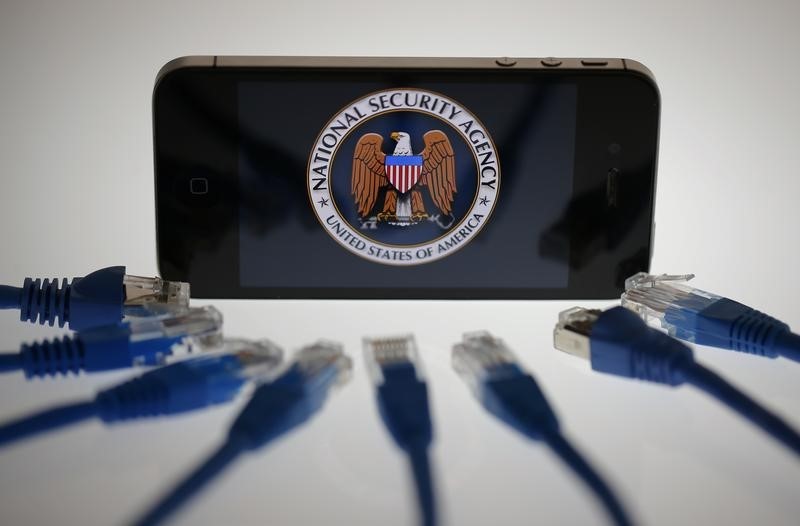By Jonathan Stempel
NEW YORK (Reuters) - A U.S. appeals court on Thursday refused to immediately halt the government's bulk collection of millions of Americans' phone records during a "transition" period to a new federal scheme that bans the controversial anti-terrorism surveillance.
The 2nd U.S. Circuit Court of Appeals in New York said it would not disturb Congress' decision to provide a 180-day period for an "orderly transition" to a new, targeted surveillance system from the sweeping National Security Agency program that the court found illegal on May 7.
"An abrupt end to the program would be contrary to the public interest in effective surveillance of terrorist threats, and Congress thus provided a 180-day transition period," Circuit Judge Gerard Lynch wrote for a three-judge panel. "Under the circumstances, we will defer to that reasonable decision."
The NSA program collected "metadata" such as phone numbers dialed and call durations, but not call contents. It was first disclosed in 2013 by former NSA contractor Edward Snowden.
Thursday's decision rejected a request by the American Civil Liberties Union for a preliminary injunction to stop the program until the narrower scheme begins on Nov. 29.
Alex Abdo, an ACLU lawyer, said that while the group disagreed with the latest decision, "all Americans should celebrate" the imminent end to bulk collections.
"It will now be up to the district court to address to what extent the government must purge the call records it collected unlawfully," he said. "The government still needs to rein in other overreaching NSA spying programs."
The U.S. Department of Justice, which opposed an injunction, did not immediately respond to a request for comment.
Lynch wrote for the 2nd Circuit in May that the old NSA program was not authorized under the USA Patriot Act, and violated Americans' privacy rights.
That program lapsed on June 1, but the next day Congress revived it for 180 days under the USA Freedom Act, which President Barack Obama quickly signed.
The law reined in the government's data collection authority and requires phone companies, not the NSA, to hold bulk phone records.
It also lets intelligence agencies make tightly focused searches of metadata, upon approval by the federal Foreign Intelligence Surveillance Court.
In late June, that court said the NSA could temporarily resume bulk collections while the government moved to the new scheme.
The Patriot Act, enacted after the Sept. 11, 2001 attacks, gave the government broad tools to investigate terrorism.

The case is American Civil Liberties Union et al v. Clapper et al, 2nd U.S. Circuit Court of Appeals, No. 14-42.